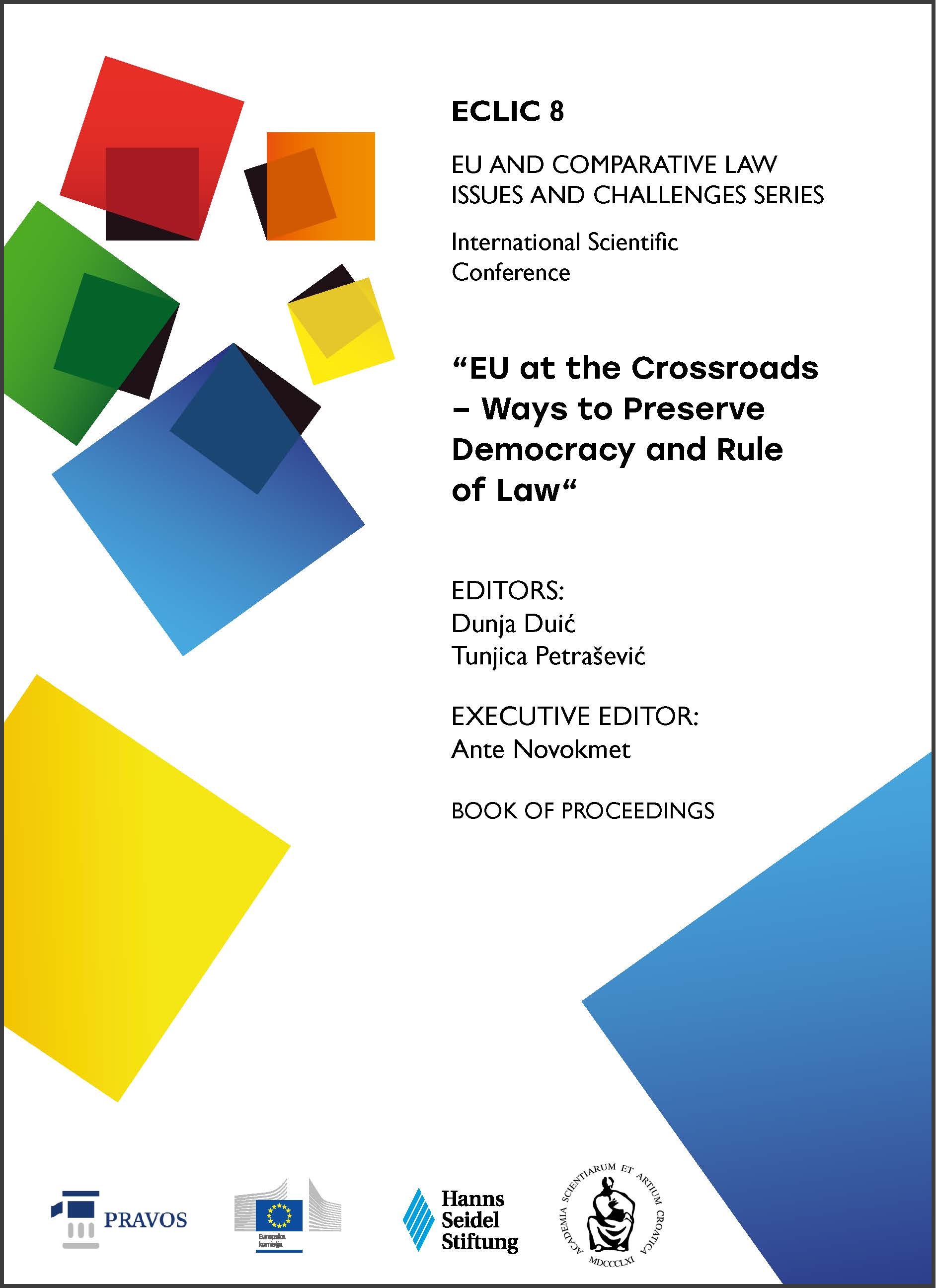CROATIA'S CONSTITUTIONAL DEBATE ON DE IURE AND DE FACTO INDEPENDENCE OF THE JUDICIARY
FROM THE RIGHT TO AN INDEPENDENT COURT ESTABLISHED BY LAW TO "THE RIGHT TO A ROGUE JUDGE"?
DOI:
https://doi.org/10.25234/eclic/32307Abstract
The paper first analyses recent legislative restructuring of higher courts in Croatia that has limited access to the said courts and their procedural powers. The initiatives for divesting appellate courts and the Supreme Court of their case-law harmonisation powers have been discussed, as well as the character of section meeting opinions that are legally binding on judges of the section concerned, which allegedly raise questions as to the incompatibility with the right to an independent court established by law. This discussion includes the views of AG Pikamäe expressed in the pending case C-554/21 et al. (HANN-INVEST). The paper also reviews legislative interventions in the procedure for appointment of the President of the Supreme Court and a failed attempt to introduce periodic security vetting of all judges with special quasi-disciplinary chamber of the Supreme Court. These processes are then explained by law and economics models of de iure and de facto judicial independence and constitutional arrangements, applied to the case-law of the ECtHR, the CJEU and the Croatian Constitutional Court. The paper concludes that the Croatian legislature has undermined de iure and de facto judicial independence of Croatia's higher courts. On the other hand, the Croatian Constitutional Court has been observing both formal and informal factors of judicial independence and has thus established that: 1. no constitutional or legal check against the executive's interference with independence of the judiciary should be dismantled or construed narrowly, no matter how hypothetical de iure independence of judges may appear; 2. no abstract aspect of the principle of judicial independence may run counter practical and effective enjoyment of individual right to a non-arbitrary judge or the principles of lawfulness and proper administration of justice. It has been inferred from the law and economics model that the Supreme Court has become the most important institutional actor of judicial independence in Croatia and therefore legislative restructuring of the said court should be put to an end.
Downloads
Published
How to Cite
Issue
Section
License
Copyright (c) 2024 Helena Majić

This work is licensed under a Creative Commons Attribution-NonCommercial 4.0 International License.
Authors retain the copyright on the papers published in the Journal, but grant the right of first publication to the Journal. Papers accepted for publication or already published in ECLIC of the Faculty of Law in Osijek may be published by the author(s) in other publications only with proper notice of its previous publication in ECLIC.


